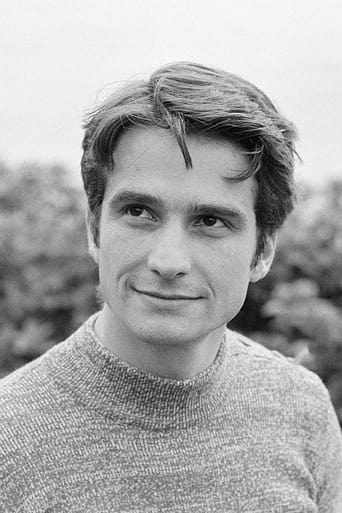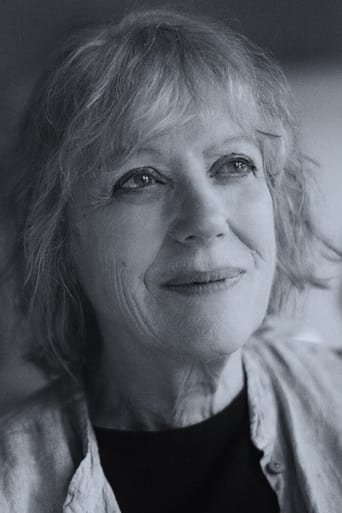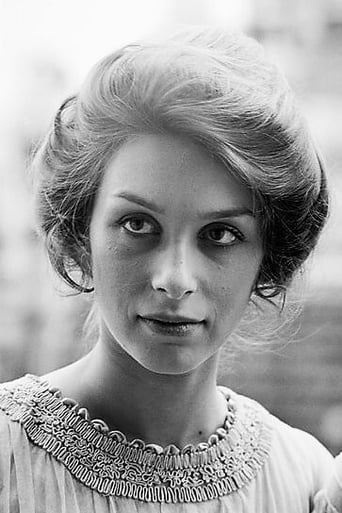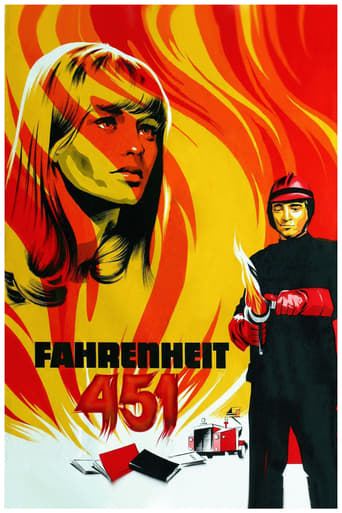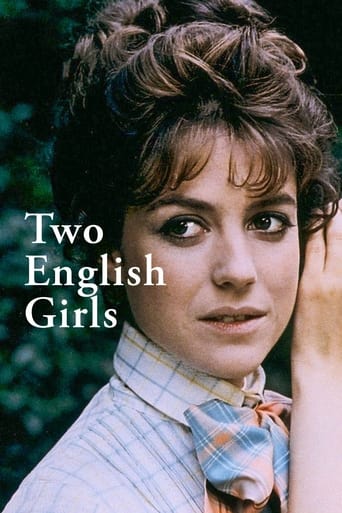
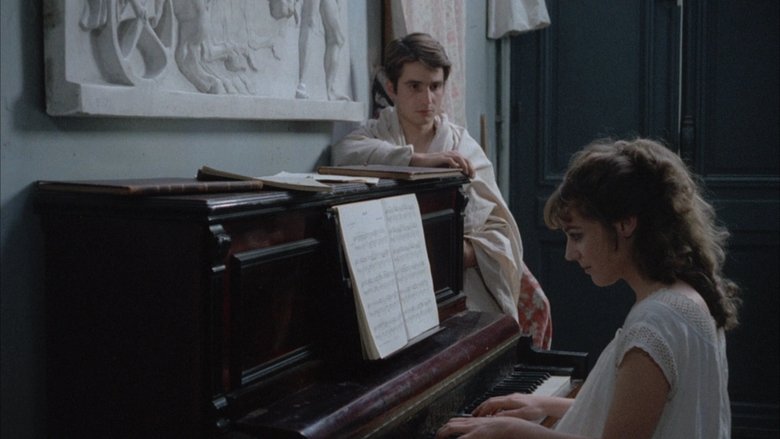
Two English Girls (1972)
At the beginning of the 20th century, Claude Roc, a young middle-class Frenchman, befriends Ann, an Englishwoman. While spending time in England with Ann’s family, Claude falls in love with her sister Muriel, but both families lay down a year-long separation without contact before they may marry.
Watch Trailer
Cast
Similar titles
Reviews
I like movies that are aware of what they are selling... without [any] greater aspirations than to make people laugh and that's it.
It's entirely possible that sending the audience out feeling lousy was intentional
Great movie! If you want to be entertained and have a few good laughs, see this movie. The music is also very good,
The movie's neither hopeful in contrived ways, nor hopeless in different contrived ways. Somehow it manages to be wonderful
The actor Jean-Pierre Leaud, the child star of Truffaut's breakthrough '400 Blows' and who plays the protagonist Claude in 'Deux Anglaises et le Continent' symbolises the flawed and tender charm at the heart of this 1971 film. Leaud can't act. Nevertheless, by dint of his solemn Gallic charm and beauty, there is something deeply moving about this turn-of-the- century cross-Channel menage-a-trois. The story is an adaptation of a novel by Truffaut's beloved author Henri Pierre Roche who also wrote the novel which inspired 'Jules et Jim'. 'Deux Anglaises et le Continent' is written in diary form from the points of view of three characters, Anne, Muriel and Claude who make up the narrative's central love triangle. The story is basically one of thwarted love. Both English sisters develop strong feelings for their French 'brother' Claude, which eventually turns into destructive sexual passion. As such, the film is an inversion of 'Jules et Jim', which was a comic celebration of love between two close male friends and one girl. Stories of doomed love appealed to Truffaut.When it appeared in cinemas, the film was a critical and commercial flop. In '71 society was in the grip of sexual liberation, and here was Truffaut, who had reflected the zeitgeist so perfectly six years earlier with a whimsical celebration of liberated passion in 'Jules et Jim' serving up a period piece more reminiscent of the buttoned-up prudery of a Bronte novel.There are many things wrong with the film. There is an odd tension between the acceptance of Claude's promiscuity as a French fait accompli on the one hand, and the sisters' chaste Victorian values on the other. The film also contains anachronisms throughout which it's fun to spot, including modern electricity pylons. The first half of the film is set in Wales but you can tell it was filmed in Normandy (Truffaut didn't want to travel to a non-French speaking location.) There are several scenes in English in which the dialogue makes you squirm. And, in my opinion, it was an error of judgement on the film maker's part to record the voice-over narration himself in such a hasty, lacklustre tone. And yet, and yet... There is something moving and wonderful at the heart of this film because it is naive. When it was made, society had moved on and women were taking the pill and changing history; the last thing it wanted was a pastel mood-piece about two thirty year-old virgins. But there is an innocence at the film's heart which is not sentimental but you could call it very male. On the one side you have Leaud's truly shocking moments of ham acting, stilted dialogue, unbelievable period settings and a generally plodding tone, but in the balance these are outweighed by the beauty of the cinematography, the fine performances from Kika Markham and Stacey Tendeter, the music, and Truffaut's genuine feeling for the intricacies of love in all its colours.
there are two things that held this film back from being a truffaut masterpiece: the voice over and jean pierre leaud.the voice over is overused in this film and is hardly effective in many cases. the voice over always sound rushed, hasty and monotonous, it hardly treats the story sensitively and it sounds like truffaut (the one doing the voice over) is trying to say it as fast as he can so he can move on to something else in the story. the problem is he uses the voice over to explain complex emotions of the characters and he could have used someone else to do the voice over with more expression and pace. this brings me to my second problem with the film. the voice over is often explaining the complex emotions of leaud's character, claude, while leaud wears the same expression of confusion and dismay throughout the film. he says his lines in that same quiet, shy voice for most of the film and looks uncomfortable and timid in the role. my suspicion is that truffaut used voice over to compensate for leaud's lack of acting ability. leaud is thoroughly miscast as claude, a complex character who is at the center of the love triangle. but somehow, the film does pull together and is a very moving story about what happens when three people distrust their instincts and refuse to make decisions about their feelings for one another. anne and claude hide their intention of committing to each other behind this french idea of "free love" that neither really buys into. muriel is a very religious woman who treads very carefully with claude because of his ideas on love and sex and has some very strong guilty feelings about her sexual desire. claude...well according to the voice over, he prefers to love them from afar than to choose between them. he wants both women, but knows he can't so he subconsciously refuse to choose between them and just go back and forth between the two when the relationship with one becomes difficult. anne and muriel are similar to other truffaut heroines. anne is more forgiving and nurturing and patient, very much like Julie from day for night. muriel is the unstable passionate one who could sacrifice her sanity for a man, very much like catherine from jules and jim or adele H. they're both well acted by kika markham and stacey tendeter, and they're the ones who carry this film. the photography wasn't as lush as i expected it to be, but it has enough eye candy for those who love costume dramas with nice houses and gardens. the voice over and the dialogue are very well written and is poetic without sounding trite most of the time.the film could have been a masterpiece of truffaut if he'd got someone else to do the voice over and got a more competent actor for claude. the film compensates for these weaknesses with superb writing and good performances from the rest of the cast.
"Two English Girls" is a lyrical, amusing slice of Truffaut's unique vision and style of filmmaking. Like all great artists, he can shift his tone from lushly romantic to deadpan comic, from poetic to amusingly prosaic without missing a beat, and all the while keeping his story all of one piece. If you love Truffaut's voice, you'll love this film - charming, personal, light-hearted, with a touch of melancholy. Beautifully filmed, ably acted, with Leaud playing his benign cad so well.
Truffaut's this masterpiece is a novel adaptation. Truffaut's skillful story-telling meets with the magnificent performance of Léaud. The story seems to be melodramatic. Truffaut's biggest success in that film is the narrative clearness and "economy". Truffaut uses very subjective plots, but he never leaves the spirit of the story. The contrast of two sisters and the different point of views of English Ladies and the French gentleman creates the brilliant dramatic effect.Truffaut is also very successful about underlining the Freudian relationship of Anne and Muriel and their attitudes towards their mother.
